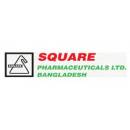Immunoglobulin is made from plasma separated out from donated blood. During manufacture everything except a type of immunoglobulin called immunoglobulin G (IgG) is removed from the plasma. IgG is very good at fighting bacteria and viruses. IgG has other effects too, so it isn’t just used for people with immune deficiency. You might hear about immunoglobulin being used in some people with other immune (autoimmune) problems.
Types
Your body makes a few different types of immunoglobulin antibodies, including these:
Immunoglobulin A: IgA antibodies are found in the mucous membranes of the lungs, sinuses, stomach, and intestines. They’re also in fluids these membranes produce, like saliva and tears, as well as in the blood.
Immunoglobulin G: IgG is the most common type of antibody in your blood and other body fluids. These antibodies protect you against infection by “remembering” which germs you’ve been exposed to before.
If those germs come back, your immune system knows to attack them. Your doctor can test for IgG to figure out whether you’ve been infected by certain kinds of bacteria or virus.
Immunoglobulin M: Your body makes IgM antibodies when you are first infected with new bacteria or other germs.
They are your body’s first line of defense against infections. When your body senses an invader, your IgM level will rise for a short time. It will then begin to drop as your IgG level kicks in and increases to protect you long-term.
Immunoglobulin E: Your body makes IgE antibodies when it overreacts to substances that aren’t harmful, such as pollen or pet dander. Your doctor will likely measure your IgE levels if you have a blood test to check for allergies
Immunoglobulin D (IgD): This is the least understood antibody, with only small amounts in the blood.
Treatment
Immunoglobulin therapy:
This booklet has been produced by the PID UK Medical Advisory Panel and Patient Representative Panel in conjunction with Great Ormond Street Hospital and the Great North Children’s Hospital. It provides information on immunoglobulin therapy (Ig therapy) to help answer the questions parents may have about this form of treatment for children and young people affected by primary immunodeficiency (PID).The information should not, however, replace advice from a clinical immunologist.Immunoglobulin replacement therapy is a blood-based treatment. The immunoglobulin contains IgG antibodies that help to fight infection. Your child has been recommended this treatment because their doctors have found that their immune system is either not making antibodies, not making enough antibodies or the ones they are making don’t work properly. Immunoglobulin can be given intravenously (into a vein) or subcutaneously (under the skin).
The list of some Immunoglobulin medicine:









